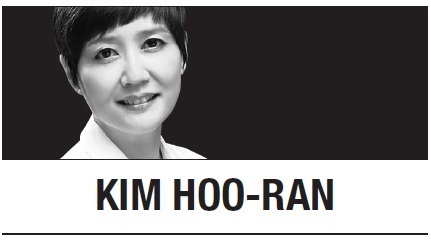
The novel coronavirus that began its insidious spread at the beginning of the year continues to wreak havoc around the world, claiming lives, slowing down economies and changing the way we live.
South Korea, which was initially hit hard by a large cluster of COVID-19 cases in Daegu involving a cultish religious group, continues to be plagued by low-level spreads. On Thursday, the government announced 54 new cases, 44 of them local infections and 10 from abroad.
Although the number of new cases has stayed manageable, the highly contagious respiratory illness has spread to more corners of the country with many cases being untraceable to the original source. Such developments are raising the specter of a second wave of infections, potentially with a “stronger” coronavirus, hitting the country.
Authorities are concerned that should the COVID-19 spread follow the current trend, the country’s health care system may become overwhelmed. And we have seen how such a situation has unfolded in Europe, the US and South America, resulting in great human tragedy.
We get daily reminders via text message: Wear masks, wash hands frequently, practice social distancing, stay away from crowds and avoid meetings, large and small. On Thursday morning, a text message from the Central Disaster and Safety Countermeasures Headquarters reminded us that COVID-19 is particularly lethal for the elderly and urged people to observe government guidelines when visiting them.
These daily messages are in danger of falling on deaf ears, however, as the prolonged pandemic situation has led to a coronavirus fatigue. People are increasingly tuning out warnings and news about COVID-19.
Passing through a popular food court at a downtown department store recently, I was shocked by how crowded it was and by how people appeared nonchalant about not wearing masks as they sat down for meals, often talking loudly to be heard over the din of the noisy lunchtime crowd. Either these people were not aware of the frequent warnings against such behavior or had decided to ignore them and carry on with their lives as usual.
However, going about our lives as usual in these extraordinary times is not only perilous for you, but puts the people close to you, your community and, in a broader sense, the whole country at risk. Your actions can have consequences that reach far beyond you.
The government may issue one guideline after another, and issue administrative orders against certain high-risk activities, but ultimately it is up to the individual to comply. Indeed, the government can only appeal to a sense of civic mindedness as it urges the public to observe its guidelines against the spread of COVID-19 and as it hopes that people will rise to the challenge.
However, businesses could do better.
The operator of the aforementioned food court could have limited the number of tables and chairs to ensure adequate distancing among diners. Restaurants that continue to offer buffet-style dining must make sure that guests maintain distance as they stand in line and limit the use of shared utensils.
Airlines can offer more flights on popular domestic destinations so that passengers can be seated with adequate distance between them. With the number of flights reduced and smaller-capacity planes serving the Seoul-Jeju Island route, I recently found myself on a fully booked flight, surely not an environment conducive to safe flying.
On a recent hospital visit, all I was required to do was verbally answer the question, “Have you been to a high-risk place recently?” and stop for a temperature check after which I was given a sticker that allowed me to enter the building. At another hospital, I was required to fill out a health questionnaire and sign my name to it, and get my temperature taken. Strict compliance is a must at high-risk facilities and there must be uniform measures across all large hospitals.
Mandatory scanning of QR codes containing personal details is now required to enter certain places, including several types of drinking establishments, karaoke rooms, clubs and gyms. However, this will do little to prevent the spread of the virus, as the measure is focused on facilitating contact tracing.
Ultimately, whether we succeed or fail to contain the spread of COVID-19 depends largely on the choices we make as individuals. To prevent coronavirus spread, practicing strict personal hygiene is as essential as is not engaging in risky behaviors. For this, each individual is ultimately responsible. There is only so much the government can do in a democracy; the rest is up to each citizen being a responsible member of society.
So, the next time you feel like taking off your mask on public transportation or going out for a night of merrymaking, take a second to think of the consequences of your actions.
By Kim Hoo-ran (khooran@heraldcorp.com)
--
Kim Hoo-ran is the culture desk editor at The Korea Herald. - Ed.







![[Graphic News] More Koreans say they plan long-distance trips this year](http://res.heraldm.com/phpwas/restmb_idxmake.php?idx=644&simg=/content/image/2024/04/17/20240417050828_0.gif&u=)
![[KH Explains] Hyundai's full hybrid edge to pay off amid slow transition to pure EVs](http://res.heraldm.com/phpwas/restmb_idxmake.php?idx=644&simg=/content/image/2024/04/18/20240418050645_0.jpg&u=20240419100350)






![[From the Scene] Monks, Buddhists hail return of remains of Buddhas](http://res.heraldm.com/phpwas/restmb_idxmake.php?idx=652&simg=/content/image/2024/04/19/20240419050617_0.jpg&u=20240419175937)

![[KH Explains] Hyundai's full hybrid edge to pay off amid slow transition to pure EVs](http://res.heraldm.com/phpwas/restmb_idxmake.php?idx=652&simg=/content/image/2024/04/18/20240418050645_0.jpg&u=20240419100350)

![[Today’s K-pop] Illit drops debut single remix](http://res.heraldm.com/phpwas/restmb_idxmake.php?idx=642&simg=/content/image/2024/04/19/20240419050612_0.jpg&u=)